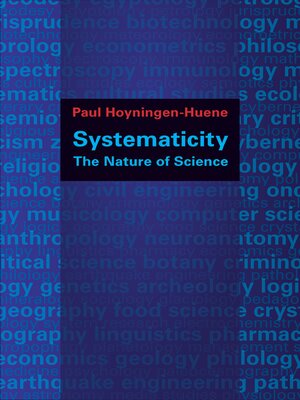Systematicity
ebook ∣ The Nature of Science · Oxford Studies in Philosophy of Science
By Paul Hoyningen-Huene

Sign up to save your library
With an OverDrive account, you can save your favorite libraries for at-a-glance information about availability. Find out more about OverDrive accounts.
Find this title in Libby, the library reading app by OverDrive.



Search for a digital library with this title
Title found at these libraries:
| Library Name | Distance |
|---|---|
| Loading... |
In Systematicity, Paul Hoyningen-Huene answers the question "What is science?" by proposing that scientific knowledge is primarily distinguished from other forms of knowledge, especially everyday knowledge, by being more systematic. "Science" is here understood in the broadest possible sense, encompassing not only the natural sciences but also mathematics, the social sciences, and the humanities. The author develops his thesis in nine dimensions in which it is claimed that science is more systematic than other forms of knowledge: regarding descriptions, explanations, predictions, the defense of knowledge claims, critical discourse, epistemic connectedness, an ideal of completeness, knowledge generation, and the representation of knowledge. He compares his view with positions on the question held by philosophers from Aristotle to Nicholas Rescher. The book concludes with an exploration of some consequences of Hoyningen-Huene's view concerning the genesis and dynamics of science, the relationship of science and common sense, normative implications of the thesis, and the demarcation criterion between science and pseudo-science.







